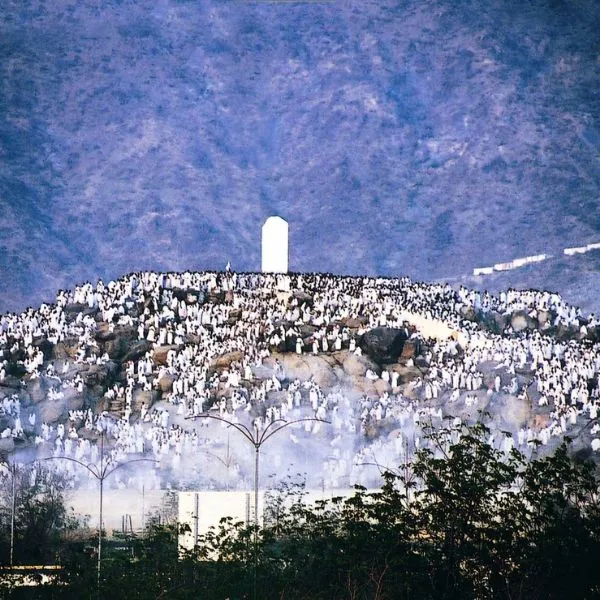
Arafat Day
Day is one of the most significant days in the Islamic calendar, falling on the 9th day of Dhul-Hijjah, the last month of the Islamic year. It is the day before Eid al-Adha, one of the two major Islamic festivals, and holds deep spiritual meaning for Muslims around the world. This day is filled with reflection, prayer, and acts of worship, and it plays a crucial role in the annual pilgrimage of Hajj. In this blog, we will explore the significance of Arafat Day, its rituals, and why it is so important in Islam.
What is Arafat Day?
Day is the culmination of the annual Hajj pilgrimage. It takes place at the Plain of Arafat, a vast area located outside of Mecca, Saudi Arabia. On this day, millions of Muslims gather at to stand in prayer, seek forgiveness, and reflect on their lives. The Standing at Arafat, or Wuquf, is one of the most important rituals of Hajj.
While Arafat Day is specifically significant for those performing Hajj, its importance extends to all Muslims, as it is a day of prayer and reflection for the entire Muslim Ummah (community).
The Spiritual Significance of Arafat Day
Arafat Day holds immense spiritual importance for Muslims. It is a day when Muslims seek forgiveness from Allah, reflect on their sins, and strive for self-improvement. Here are some key spiritual aspects of Day:
1. Forgiveness of Sins
Arafat Day is a time of immense mercy and forgiveness from Allah. The Prophet Muhammad (PBUH) said: “There is no day on which Allah frees more people from the Fire than on the Day of Arafat.” (Sahih Muslim). Muslims believe that on this day, Allah forgives the sins of those who sincerely repent and seek His mercy. This is why many Muslims spend the day in prayer, asking for Allah’s forgiveness and making supplications for themselves and others.
2. Completing the Hajj Rituals
For those performing Hajj, Day is the most important part of the pilgrimage. The Standing at Arafat (Wuquf) is considered the pinnacle of the Hajj journey. It is believed that the Hajj is incomplete without spending the day at Arafat, making it a critical component of the pilgrimage.
3. Reflection and Repentance
Arafat Day offers a time of deep reflection and repentance. Muslims take the opportunity to reflect on their actions over the past year and make sincere efforts to turn toward Allah. This day encourages self-purification, seeking forgiveness for past mistakes, and vowing to improve one’s conduct in the future.
Rituals and Practices on Arafat Day
On Day, Muslims around the world engage in various acts of worship, including fasting, prayer, and making heartfelt supplications. Here are the key rituals and practices:
1. Standing at (Wuquf)
For those performing Hajj, the primary ritual of Day is standing at the Plain of Arafat. Pilgrims spend the day in prayer, seeking Allah’s mercy and making personal supplications. This standing is a symbol of humility and devotion, as millions of Muslims gather in one place to pray in unity.
For those not performing Hajj, the day remains important as well. While they do not physically stand at Arafat, Muslims around the world fast and make supplications on this day.
2. Fasting on Arafat Day
Fasting on Arafat Day is highly recommended for Muslims who are not on the Hajj pilgrimage. The Prophet Muhammad (PBUH) said: “Fasting on the Day of expiates the sins of the previous year and the coming year.” (Sahih Muslim).
3. Making Supplications (Dua)
Arafat Day is a time to make heartfelt supplications. Muslims believe that the du’a (supplications) made on this day are more likely to be answered by Allah. It is a day for Muslims to ask for personal forgiveness, blessings, and guidance, and to pray for the well-being of loved ones and the entire Muslim community.
4. Praying for the Hajj Pilgrims
Although Arafat Day is especially significant for those performing Hajj, Muslims around the world also offer prayers for the pilgrims, asking Allah to accept their Hajj and grant them forgiveness.
The Link Between Arafat Day and Eid al-Adha
Day is the day before Eid al-Adha, the “Festival of Sacrifice.” While Arafat Day is focused on repentance, supplication, and seeking forgiveness, Eid al-Adha celebrates the willingness of Prophet Ibrahim (Abraham) to sacrifice his son Isma’il in obedience to Allah’s command.
Although Arafat Day is a day of solemn reflection, the following day, Eid al-Adha, is a joyful celebration of obedience to Allah and the willingness to give for the sake of Allah.
Conclusion
Day is one of the holiest and most spiritually significant days in the Islamic calendar. Whether performing Hajj or not, Muslims around the world take this opportunity to seek Allah’s forgiveness, engage in deep reflection, and make supplications for themselves and others. It is a day that reminds Muslims of the mercy and compassion of Allah, and it serves as a time for self-purification, repentance, and spiritual growth. As Arafat Day leads into the celebration of Eid al-Adha, it marks the beginning of a time for reflection, sacrifice, and gratitude to Allah.


